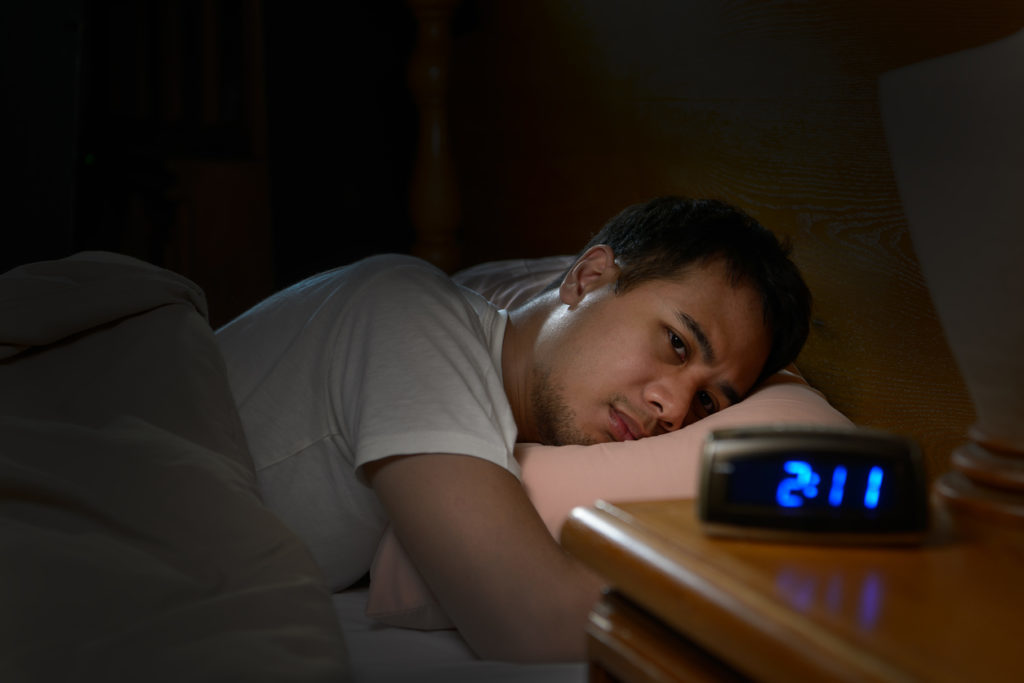This Is Why You’re Not Sleeping!

A sleep expert has revealed five top tips to help us “spring clean” our sleeping habits in time for summer.
Research from Silentnight and the University of Leeds recently revealed 25% of Brits get five hours sleep a night or less, and the average person loses an astounding 15 days’ worth of sleep every year.
Now, in a bid to solve the nation’s difficult relationship with shut-eye, a leading sleep doctor has identified five unhealthy habits that she believes are at the root of the nation’s poor sleep.
After decades of studying sleep complaints, Silentnight’s expert Dr Nerina Ramlakhan believes kicking these five bad habits, and giving your sleep routine a thorough spring clean, could be the answer to getting a good night’s kip.
Your morning coffee
We all know that too much caffeine late in the day will hamper your chance of getting a good night’s sleep, but did you know that grabbing a skinny latte first thing in the morning could also be costing you shut-eye? Not eating proper food within 30 minutes of waking up leaves your body running on the wrong kind of energy and relying on stress hormones to function.
Eating breakfast activates your circadian clock and allows your body to produce the sleep hormone melatonin. People who eat a proper breakfast find it less difficult to fall asleep and stay asleep, wake up with more energy and are less inclined to hit the snooze button. Eating breakfast can also boost your overall mood and reduce feelings of anxiety.
Sleeping on an old mattress
According to Silentnight’s research, nearly 50% of us are sleeping on mattresses that were bought for someone else, and 22% of us would happily sleep on the same mattress for 20 years. But this grubby habit could be seriously damaging our health.
The average person sheds up to a pound of skin and hair a year, and not regularly replacing bedding can actually lead to bed bug infestations and the spread of dangerous infections like staphylococcus, norovirus and even MRSA – not to mention sagging, old mattresses leading to neck and back issues. Regularly change and wash your bedding and invest in a new mattress every 7-8 years to ensure you are sleeping in a clean and healthy environment.
Late night series binges
Watching the next episode of the series you can’t switch off might feel like a great way to wind down in the evening, but if you’re watching on a laptop or tablet you could be negatively impacting your sleep. The blue light emitted from electronic devices triggers the production of dopamine in the brain, over stimulating your nervous system and suppressing the production of melatonin. Cells in the hypothalamus part of the brain then secrete more dopamine, which further wakes you up and make it really difficult for you to drift off when you do want to sleep.
The weekend catch up
Are you guilty of late nights all week and then trying to catch up with a lie in on Saturday and Sunday? The hours before midnight are a really important part of sleeping well; they are the hours that are deeply restorative, that heal the body and provide sought after anti-ageing benefits.
Even if you get a good amount of sleep, going to bed late is likely to leave a large amount of your sleep being highly inefficient. Try to get to bed around 10.30pm four nights a week to allow your body to access that vital 90 minute phase of sleep before midnight.
Waking between 2am and 4am
Waking up between 2am and 4am is a surprisingly common complaint. If you wake up at this time and struggle to get to sleep it’s crucial not to start overthinking and worrying about not getting enough hours rest. The more you worry about missed sleep the worse your sleep quality will be.
While it’s important to get enough sleep, there is far too much significance placed on the holy grail of eight hours. Everyone’s sleep requirements are different and it’s unhelpful to focus on getting a set amount. The key is to pay attention to how you feel when you wake up. If you wake up feeling refreshed after six hours you’re probably getting enough sleep for you.
For more tips on a good night’s sleep . . .







